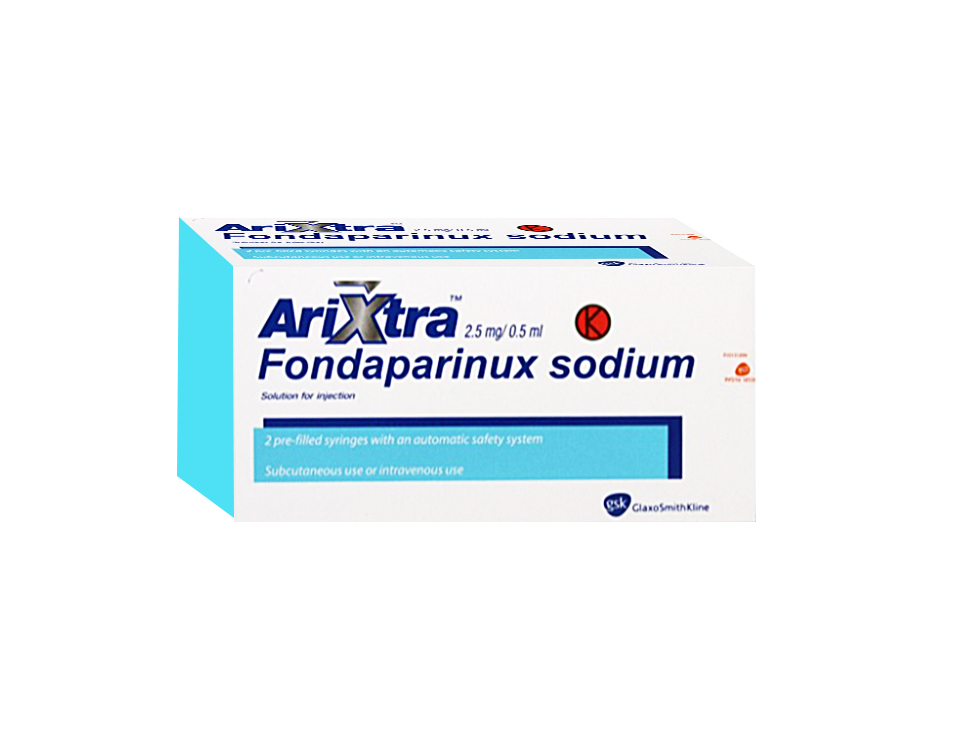Information about Arixtra (Fondaparinux)
Arixtra, which contains the active ingredient fondaparinux, is an anticoagulant used to prevent and treat blood clots. It’s commonly prescribed for:
- Deep Vein Thrombosis (DVT): To prevent and treat blood clots in the deep veins, typically following surgeries or for individuals who are bedridden.
- Pulmonary Embolism (PE): To manage and prevent blood clots in the lungs.
- Acute Coronary Syndrome (ACS): As part of the treatment for unstable angina and non-ST elevation myocardial infarction (NSTEMI) to prevent clot formation.
- Post-surgical prophylaxis: To prevent DVT and PE in patients undergoing certain types of surgery.
Product Highlights
- Arixtra belong to medicine group Fondaparinux is classified as a synthetic pentasaccharide anticoagulant.
- It is administered via subcutaneous injection.
- It has a relatively long half-life and provides sustained anticoagulation with once-daily dosing.
- Unlike some other anticoagulants, it typically doesn’t require routine monitoring of blood levels.
Key Ingredients
- Fondaparinux Sodium
- Sodium Chloride
- Water for Injection
Key Benefits
- Provides effective prevention and treatment of blood clots.
- Compared to other anticoagulants, fondaparinux has a lower risk of major bleeding complications.
- Administered once daily, this improves patient compliance.
- It has a predictable effect, minimizing the need for frequent monitoring.
Direction For Use
- The dose depends on the condition being treated. For example, the typical dose for DVT or PE is 2.5 mg once daily.
- It is a subcutaneous injection in the abdomen.
- Rotate injection sites to minimize irritation and tissue damage. Don’t massage the injection site after injection taken.
Safety Concern
- As with all anticoagulants, there is a risk of bleeding. Patients should be monitored for signs of bleeding and have regular medical follow-ups.
- Dose adjustments may be necessary for patients with impaired renal function, as the drug is primarily eliminated through the kidneys.
- Safety during pregnancy and breastfeeding is not well established; it should be used only if the potential benefit justifies the risk.
Avoid Arixtra (Fondaparinux) If
- Patients with severe renal impairment should avoid using Arixtra due to the risk of accumulation and bleeding complications.
- Individuals with active bleeding conditions or a history of major bleeding disorders should not use Arixtra.
- Those with a known hypersensitivity to fondaparinux or any components of the formulation should avoid using this medication.
- Patients with a low platelet count (thrombocytopenia) or a history of heparin-induced thrombocytopenia should avoid Arixtra due to the increased risk of adverse effects.





